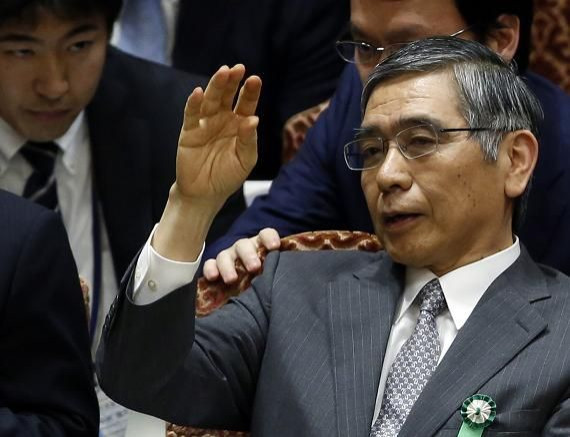BoJ Minutes Show Members Differ On Measures To Curb Market Volatility, Central Bank Retains Core Policy, Expresses Confidence About Country's Economy

The Bank of Japan, or BoJ, board members decided to continue the easy monetary policy aimed at ending a two-decade long deflation, even as some of its members voted against extending the duration of its low-interest rate lending program over fears it could be misinterpreted by the markets, minutes of the bank’s June 10-11 policy board meeting showed.
Some BoJ board members said, in the meeting, that prolonging the longer-dated fixed-rate funds supplying program beyond 2013 could help curb excessive interest-rate fluctuations in the short term, while a majority of the members said such a move could send a wrong message to the markets.
"The extension could be misinterpreted by market participants as a revision to the monetary-policy framework," a member said, according to the minutes. The proposal was intended to stem the volatility seen in Japanese markets as a result of speculation over the future of the U.S. Federal Reserve’s monetary policy.
Another member also expressed concern that if Japanese markets expected easy monetary policy from the BoJ to continue for an extended period, achieving the desired price-stability target in two years would be difficult.
“If a rise were to occur in markets' anticipation that quantitative and qualitative monetary easing would continue for a protracted period or extreme additional measures would be implemented, this could lead to economic instability in the medium to long term, such as through a buildup of financial imbalances," a member said, according to the minutes.
The minutes also showed that the central bank board members expressed confidence about the Japanese economy and about the success of the BoJ's aggressive policies.
"Japan's economy is expected to return to a moderate recovery path, mainly against the background that domestic demand increases its resilience due to the effects of monetary easing as well as various economic measures, and that growth rates of overseas economies gradually pick up, albeit moderately," the minutes said.
The board members unanimously decided to maintain the current core policy unchanged, as widely expected, and to continue with its earlier decision to increase the monetary base at an annual pace of about 60-70 trillion yen.
"The Bank will continue with quantitative and qualitative monetary easing, aiming to achieve the price stability target of 2 percent, as long as it is necessary for maintaining that target in a stable manner. It will examine both upside and downside risks to economic activity and prices, and make adjustments as appropriate," the minutes said.
At the meeting, the bank also decided to keep the country’s benchmark interest rates unchanged at near-zero percent levels.
© Copyright IBTimes 2024. All rights reserved.






















